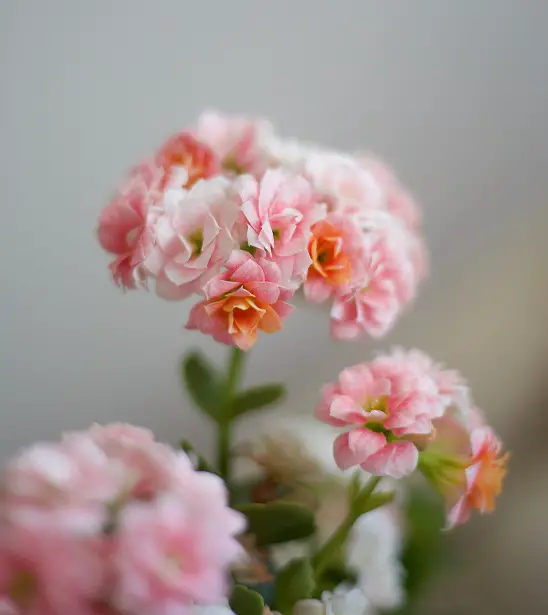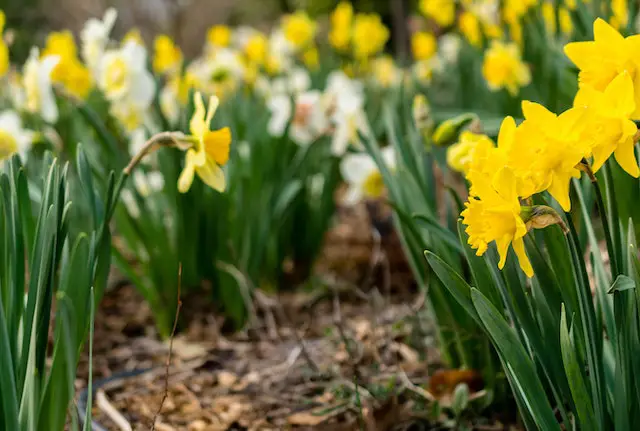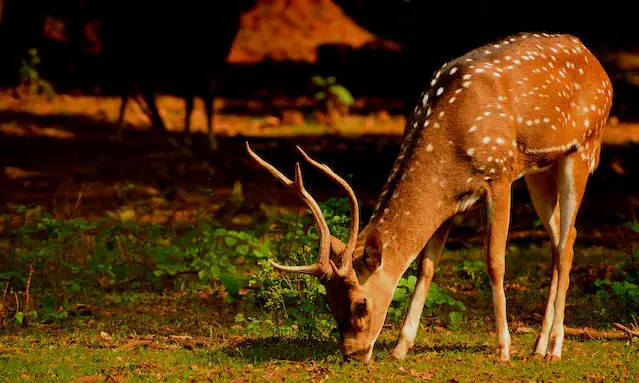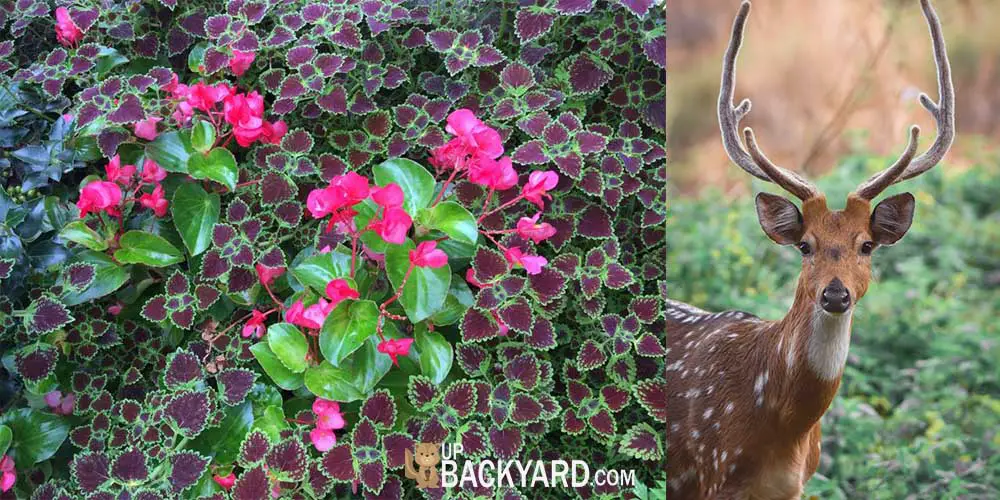When it comes to plants and shrubs that deer eat regularly like roses, azaleas and pansies, it is easy to know and understand that you need to prepare your garden space for the likelihood that deer will want to enjoy munching on your garden.
However, what about other types of flowering shrubs? Do deer eat begonias?
Begonias are subtropical plants and do not do well in areas that are temperate or cold.
Deer, on the other hand, live in areas that do get cold. In the beginning, before modern gardening, it would be rare that a deer would ever come in contact with a begonia plant.
Since begonias are not a natural part of the diet of deer, many people think that their flowering beauties are safe. Sadly, deer will eat some types of begonias.
While begonias are not a deer’s favorite food, varieties of the plant do offer smooth and soft foliage which deer love.
Begonias That Deer Will Eat

When it comes to choosing a type of begonia to plant in your garden, you may want to avoid varieties that will be attractive to deer.
These plants all have smooth foliage that deer tend to enjoy. While begonias are not a favorite or even frequently eaten food for deer, it is impossible to say if a deer would or would not eat them. It is always best to err on the side of caution.
- Dragon Wing Begonias
- Wax Begonias
- Tuberous Begonias
- Rex Begonias
- Hardy Begonias
Are There Deer-Resistant Begonias?
There are over 2,000 types of begonias worldwide. These tropical plants come in a variety of shapes, sizes, colors, and most importantly, textures.
Deer prefer smooth leaves like the ones on hostas. They also like foliage like the leaves on rose bushes, azaleas, pansies, and violas.
Some types of begonias have a smoother texture to their foliage and these would be susceptible to deer damage.
The best way to prevent deer from eating your begonias is to plant varieties that have “fuzzy” leaves.
Deer do not like the texture of “fuzzy” plants. They also do not enjoy leaves that are lace like or sharp like holly leaves.
However, deer will eat plants that they normally do not like in cases of famine or lack of other food sources.
Just like how we may have certain foods we do not enjoy eating, deer feel that way about strangely textured plants. If they were to have food insecurity or a lack of other food options, they will munch on your fuzzy begonias.
Deer-resistant does not mean deer-immune.
How To Protect Your Begonias From Deer?
There are many ways that you can protect your begonias and other plants from deer.
If you do not want to use a liquid deer repellent that can be found at garden centers and farming stores, you can try some natural or homemade techniques.
Other methods are as simple as not planting your begonias in certain areas.
- Avoid planting begonias near plants that deer enjoy eating like roses, hostas, pansies, and daylilies.
- Try growing your begonias closer to your home rather than at the edge of your property.
- Sprinkle used coffee grounds on the perimeter of your garden area.
- Grow garlic, chives, or other fragrant herbs as a way to ward off deer.
- Make a homemade garlic spray and use it on the begonia’s leaves every two weeks.
- Create barriers around your garden like fences or hedges.
- Allow your dog to frequent your garden space. This will scare off deer!
- Try using motion-activated lights or sprinklers to startle deer.
What To Grow In Your Garden To Ward Off Deer?
We know that deer have a strong sense of smell, so it makes sense that growing certain herbs and plants in our gardens will help deter them.
Many experienced gardeners will purposefully plant these crops near plants that deer tend to enjoy munching on or strategically place them as barriers.
Marigolds
Marigolds make great barrier plants as deer do not like them. The texture of the marigolds are lace like and pointy, which leaves an unpleasant experience for the mouth of the deer.
They are also incredibly pungent. Even humans do not enjoy the scent of them.
Chives
Chives, as well as onions, leeks, dill, mint, and fennel, are all delicious and common culinary herbs that will also deter deer.
Not only will they help protect your garden from deer, most of these herbs also deter smaller pests like beetles and aphids.
Just be sure not to plant fennel too close to other plants as they release a substance that stunts the growth of other plant’s root systems.
If you are hoping to create an herb garden, do not plant basil or parsley. Both of these herbs, while fragrant, are some of a deer’s favorite snacks!
Daffodils

These iconic yellow flowers offer much more than just a sunshine appearance. Daffodils contain lycorine, an alkaloid that is actually toxic to rabbits and deer!
These bulb flowers tend to pop up early in spring and can sometimes rebloom at the end of summer.
They make a great addition to an early spring garden and can be planted near carrots to help protect them from deer and rabbits.
Lamb’s Ear
While hummingbirds love them, deer hate the fuzzy and soft texture of a lamb’s ear. These plants make great additions to low lying beds and even near the entrance to your garden space.
Deer will take one look at the fluffy appearance of the lamb’s ear and head for the hills in search of other food.
Lavender
All types of lavender repel deer. While humans enjoy the strong scent, deer find it revolting and will turn away from the overpowering smell.
Growing small shrubs of lavender throughout your garden will create an aromatic paradise for you and protect your garden from unwanted deer visitors.
Bee Balm
Another purple showstopper is bee balm. While the plant is irresistible to bees and other pollinators, deer do not like the strong smell.
Bee balm smells sort of minty with a strong woody undertone. They show bright purple flowers and can grow to be up to 3 feet tall, making them great for lining your property line.
Why Deer Are Attracted to Your Garden?
Has it ever felt like deer were purposely searching your garden space out?
Even if you took the time to plant deer repelling plants and sprinkle some used coffee grounds, you may still find deer coming into your space and munching on your flowers.
What makes your garden so attractive to deer?
Growing Plants Deer Like To Eat
The first thing that makes your garden more attractive to deer is if you are growing plants that deer eat.
Deer, like all animals, have specific plants that are common in their diet. Growing one or more of the plants will increase the amount of deer that come in search of these plants.
Plants Deer Like To Eat
Do not think that just because deer like to eat them that you cannot plant these flowers or flowering shrubs.
Instead, try to not place them too close together and space them with plants that repel deer to reduce the allure.
- Daylilies
- Roses
- Geraniums
- Clover
- Sunflowers
- Hosta
- Pansies
- Blackberry Shrubs
- Juniper Shrubs
- Hawthorn Shrubs
- Flowering Dogwood Shrubs
- Rhododendrons
- Fruit trees
Water Source
Another reason that deer may be frequenting your garden space is because you have a body of water that is providing drinking water and hydration for the deer.
Both artificial and natural ponds as well as bird baths and fountains all can create a source of freshwater for deer.
You do not have to remove your water feature if you have a deer problem. Instead, deer proof the area. Fence off the water source to physically prevent deer from drinking the water.
If the pond is not home to any fish or wildlife, you can add water additives that create a bad taste for deer that will deter them from drinking.
Safe Haven

Deer will search out areas that are safe and sheltered from various predators in the wild.
They like places with lots of trees and places to hide to obstruct the view of any predator that may be wanting to attack them. Because of this instinct, they may find refuge in your garden space.
If you want to eliminate this, place statues of wolves, coyotes, or other predators throughout the garden space. This can scare the deer off and prevent them from returning.
Final Thoughts
While begonias may seem like a safe option when worried about your plants being eaten by deer, that is not always the case.
Even though begonias and deer would rarely exist in the same area, modern-day gardening has made it possible for the subtropical begonia plant to be able to thrive in the temperate climate that deer live in.
While begonias are not a deer’s favorite food, they may take a few bites of the plant every now and then, especially if they are experiencing a food shortage.
To protect your begonias and other plants, you can take a few steps of precaution in your garden space. Growing plants that deter deer is a great way to keep deer out of your garden.
You also need to look at what is making your garden so attractive to the deer and try to address it.
Growing multiple plants that deer feed on creates an all you can eat buffet for these creatures. Interweaving your garden with other plants that deter deer is a great way to put a break in the buffet line.
Taking small steps can help protect your begonias and other plants from deer this summer season.
